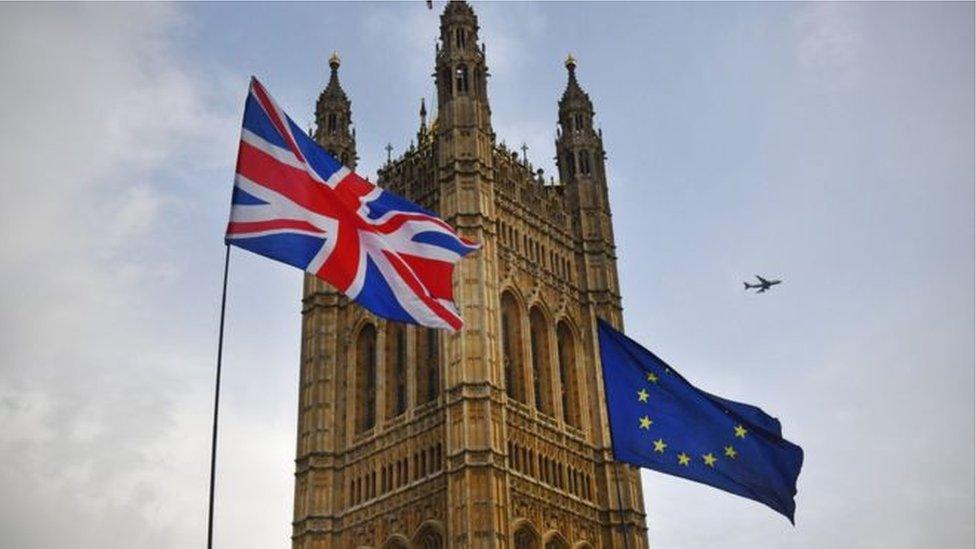Brexit: Almost 60,000 apply to 'make NI their home'
- Published

Almost 60,000 people living in Northern Ireland have applied for the settled status scheme, so they can live and work in the UK post-Brexit.
The scheme is aimed at protecting the rights of EU citizens and their family members living in the UK.
A Department for the Economy official told a Stormont committee they were keen to see as many as possible avail of the scheme.
Paul Grocott said it allows them to "make Northern Ireland their home".
On the wider issue of migration policy, Mr Grocott said the department was continuing to make the case to the UK government that it needed to "recognise the needs of the Northern Ireland economy and the Northern Ireland labour market".
"The wider developments are that we understand the Home Office will re-initiate stakeholder involvement in their points-based system (to qualify to work in the UK)," he said.
The immigration bill is currently going through Parliament.
The government announced proposals for a new immigration system, suggesting points will be awarded for being able to speak English to a certain standard, having a job offer from an approved employer and meeting a salary threshold of £25,600.
'Low preparedeness'
Other points could be awarded for certain qualifications and if there is a shortage in a particular occupation.
Giving evidence to the economy committee of the implications of Brexit for Northern Ireland, Mr Grocott said key concerns remained among businesses here on trade with Great Britain.
He said there was "low preparedness" among small businesses due to a lack of clarity and a lack of detail around tariffs.
Mr Grocott said there were also outstanding questions around customs processes, regulations and compliance on goods, and on VAT.
"Similar to the import declarations, we are acutely aware that levels of preparedness across those three themes is particularly low," he said.
"So there is an urgent need for more guidance from the UK, for businesses here to understand what those trading arrangements will be and the steps they need to prepare for them."
There was also a desire for the EU to "de-dramatise" its approach to the negotiations, he added.